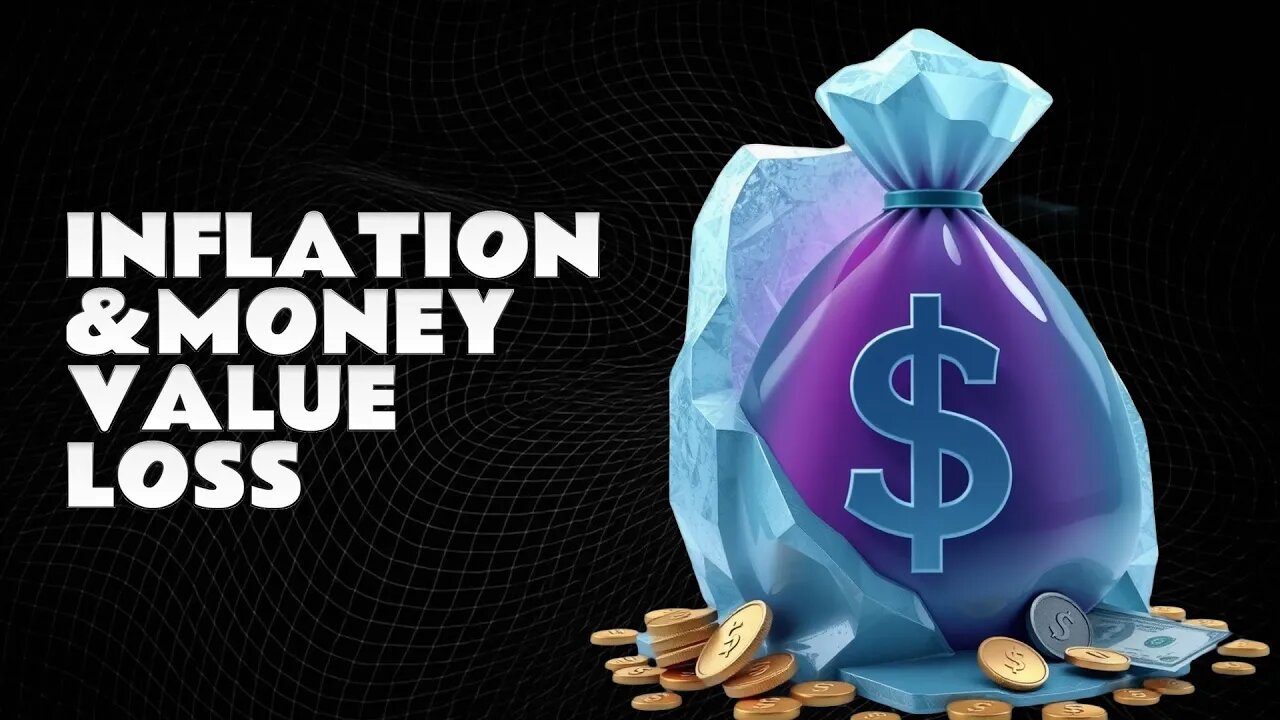Premium Only Content

Inflation Explained Simply: Why Your Money Loses Value
Inflation is a term often heard in economic discussions, but what does it really mean and why does it affect the value of your money? Simply put, inflation is the general increase in prices and fall in the purchasing value of money. When the cost of goods and services rises, each unit of currency (like a dollar) buys less than it did before. Understanding inflation is crucial for managing personal finances and comprehending broader economic trends.
At its core, inflation occurs when the demand for goods and services exceeds the supply. This can happen for various reasons, such as increased consumer spending, government deficits, or a rise in production costs. When there is more money chasing the same amount of goods, prices tend to rise. For example, if the money supply increases due to government stimulus packages or low-interest rates, more money is circulating, leading to higher prices.
There are different types of inflation, each impacting the economy differently. Moderate inflation, typically around 2-3% annually, is considered healthy as it encourages spending and investment. However, high inflation, often referred to as hyperinflation, can be detrimental, leading to economic instability and a significant decline in the value of money. Conversely, deflation, where prices decrease, can also be problematic as it discourages spending and investment.
Inflation affects individuals in several ways. For consumers, it means higher prices for everyday goods, reducing their purchasing power. For savers, it erodes the value of their savings over time. For example, if inflation is 3% annually, $100 saved today will only be worth about $97 in a year. For investors, inflation can impact returns on investments, making it essential to consider inflation-adjusted returns.
Governments and central banks use various tools to manage inflation. Monetary policy, which involves adjusting interest rates and controlling the money supply, is a primary method. When inflation is high, central banks may raise interest rates to reduce borrowing and spending, thereby cooling the economy. Conversely, during deflationary periods, they may lower interest rates to encourage spending and investment.
Understanding inflation helps in making informed financial decisions. By being aware of how inflation affects savings, investments, and everyday expenses, individuals can better plan for the future. For instance, investing in assets that tend to keep pace with inflation, such as real estate or inflation-protected bonds, can help preserve wealth.
In conclusion, inflation is a fundamental economic concept that impacts everyone. By grasping its causes and effects, individuals can navigate their financial decisions more effectively, ensuring their money retains its value over time.
-
 LIVE
LIVE
Jeff Ahern
55 minutes agoNever woke Wednesday with Jeff Ahern
93 watching -
 1:06:21
1:06:21
Timcast
3 hours agoLiberals DEFEND Nazi Tattoo On Communist Democrat Senate Candidate, ITS A CULT
120K138 -
 LIVE
LIVE
Side Scrollers Podcast
2 days ago🔴FIRST EVER RUMBLE SUB-A-THON🔴DAY 3🔴100% REVENUE HELPS CHANGE CULTURE!
1,285 watching -
 25:57
25:57
The Kevin Trudeau Show Limitless
5 hours agoThe Sound Of Control: This Is How They Program You
3.4K4 -
 LIVE
LIVE
Dr Disrespect
4 hours ago🔴LIVE - DR DISRESPECT - BATTLEFIELD 6 KILL CHALLENGE - VS VISS
1,217 watching -
 11:32
11:32
Sponsored By Jesus Podcast
3 days agoWhat “Speaking the Truth in Love” REALLY Means | Tension of Grace and Truth
10.6K6 -
 29:40
29:40
Paul Barron Network
2 days ago $0.38 earnedCrypto ETFs Launching... Even With Government SHUT DOWN?! 🤯 Grayscale INTERVIEW
7.92K -
 1:12:32
1:12:32
PatriotStreetfighter
23 hours ago10.21.25 Patriot Streetfighter w/ Sam Anthony, Citizen Journalist Platform Exploding!
13K7 -
 40:48
40:48
Sean Unpaved
3 hours agoQB Carnage: Woody's Wrath, Payton's Shade, & Saban's Bold CFB Statement
15.4K -
 2:09:51
2:09:51
Steven Crowder
6 hours agoIs Trump About To Start A War?
353K428